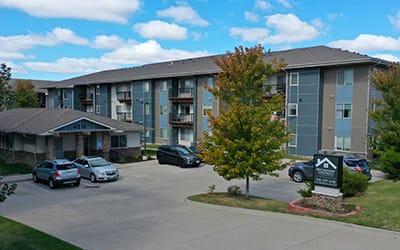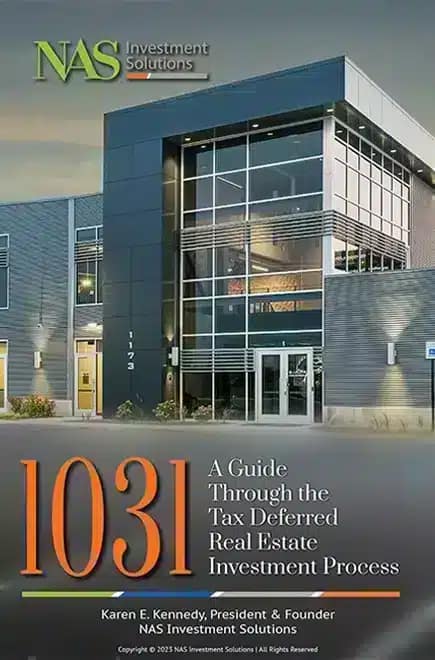Effective management in Delaware Statutory Trust (DST) structured commercial real estate investments is essential for maximizing returns and ensuring smooth operations. DSTs are unique investment vehicles that allow multiple investors to own fractional interests in large institutional grade commercial properties. This provides opportunities for passive income and tax advantages through exchanges and allows investors to defer capital gains taxes at the time of transaction as part of their estate planning. However, the success of these investments heavily relies on the distinction between asset management and property management.
Importance of Effective Management in DST Structured Commercial Real Estate
Maximizing Returns: Effective management ensures that the property generates optimal income, maximizing its value potential. This involves strategic planning, financial oversight, and proactive maintenance.
Risk Mitigation: Proper risk management helps identify and mitigate risks associated with the property, including market fluctuations, tenant issues, and regulatory compliance.
Operational Efficiency: Efficient management ensures that day-to-day operations run smoothly, minimizing downtime and maximizing tenant satisfaction.
Compliance and Reporting: Ensuring compliance with legal and tax regulations is crucial to avoid penalties and maintain the DST’s integrity. Effective management includes accurate financial reporting and adherence to all relevant laws.
Distinguishing Between Asset Management and Property Management
Asset Management
Strategic Focus: Asset management in DSTs involves making high-level decisions to maximize the property’s value and returns. This includes determining which capital improvements will bring the greatest returns and assessing disposition options.
Financial Oversight: Asset managers provide quantitative, reliable, strategic financial planning, evaluate performance with precise decision-making, and expertly navigate risk to secure sustainable profitability and lasting success.
Investor Relations: Asset managers routinely communicate with investors, providing real-time updates on performance and strategic decisions.

Property Management
Operational Focus: Property management deals with the day-to-day operations of the property, including maintenance, tenant relations, and rent collection.
Tenant Services: Property managers ensure tenant satisfaction by timely addressing requests, administering leases, and maintaining the property.
Maintenance and Repairs: Property managers are responsible for regular upkeep and emergency repairs to keep the property in good and marketable condition.
Real-Time Reporting to Asset Management for Ownership: Property managers are obligated, per their contracts, to observe and timely report on the operations/physical conditions, tenant relation concerns and changes within the submarket impacting the value of the asset. Successful performance provides the Asset Manager with metrics that enable them to maximize their effectiveness.
Key Differences Between Asset Management and Property Management
Role & Responsibilities: Asset managers focus on strategic decisions and financial performance, while property managers execute operational tasks and tenant relations.
Goals: Asset management aims to maximize return on investment [ROI] and long-term value enhancement, whereas property management focuses on maintaining the property and ensuring smooth operations including but not limited to maximizing revenue and managing collections.
Scope: Asset management often involves managing a portfolio of properties, while property management is typically concerned with individual properties.
Understanding these distinctions and properly assigning these distinct roles is crucial for investors in DST structured commercial real estate to understand how their investments can achieve optimal success.
Collaborative Management: Synergy is Key to Maximizing Real Estate Investment Success
The success of commercial real estate investments relies on the seamless collaboration between asset managers and property managers:
Strategic Alignment: Asset managers set the strategic direction and financial goals for the property, while property managers execute these strategies on the ground. This alignment ensures that the property meets its long-term objectives while maintaining day-to-day functionality.
Enhanced Performance: By working together, asset managers and property managers can optimize both financial and operational performance. Asset managers provide strategic vision, while property managers ensure efficient operations on the ground.
Risk Management: Asset managers identify and mitigate financial risks, while property managers address property operational risks. This comprehensive approach to risk management helps protect the property’s value and ensures its long-term success.
Owners/Investors Satisfaction: Effective collaboration between asset managers and property managers ensures that both owners/investors and tenants are satisfied.

Factors to Consider When Selecting a Commercial Property Asset Manager
Choosing the right commercial property asset manager is crucial for maximizing the value and performance of your real estate investments. Here are key factors to consider:
Experience and Performance Record: Seek an asset manager with a proven track record of managing properties like yours. Their experience in handling diverse commercial spaces ensures a thorough understanding of the unique challenges and opportunities associated with multi-family, office, retail, or mixed-use developments.
Financial Acumen: An effective asset manager should have strong fiscal management skills, including budgeting, financial reporting, and performance analysis. They should be able to develop and implement strategies that enhance the property’s financial performance and maximize ROI.
Strategic Vision: Asset managers should have a strategic vision for the property, focusing on long-term value creation and growth. They should possess a deep understanding of market trends and dynamics to make informed decisions about acquisitions, property operations and marketing/leasing, construction/capital improvements and handling dispositions.
Communication and Transparency: Effective communication with property management team, investors, is essential. The asset manager should provide regular updates and transparent reporting on the property’s performance. Look for a manager who is transparent in their dealings and provides clear, detailed financial reports.
Risk Management: An asset manager should be adept at identifying and mitigating risks associated with the property, including market fluctuations, tenant issues, and regulatory compliance. They should take a proactive approach to risk management, implementing measures to protect the property’s value.
Technology and Innovation: Modern asset managers leverage technology to improve efficiency and decision-making. Look for those who use advanced property management software, data analytics, and other innovative tools. They should be adaptable to innovative technologies and industry trends to ensure the asset meets the highest standards of performance.
Reputation and References: Research the asset manager’s reputation in the industry. Positive reviews and testimonials from other property owners and investors can provide valuable insights. Ask for references and speak with their current or past clients to understand their experience and satisfaction with the asset manager’s services.
Selecting the right commercial property asset manager involves careful consideration of these factors to ensure they align with your investment goals and can effectively manage your property for long-term success.
The Success of DST Investments is centered on the Quality of Asset Management
In conclusion, the success of DST investments hinges on the quality of asset management. By distinguishing between asset management and property management, and ensuring effective collaboration between the two, investors can unlock the full potential of their DST investments.











